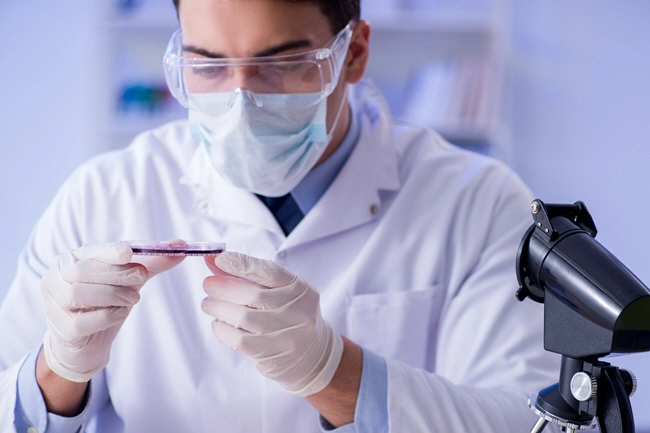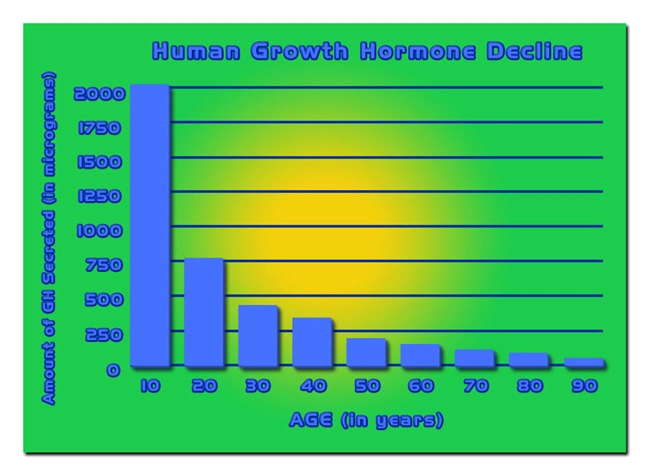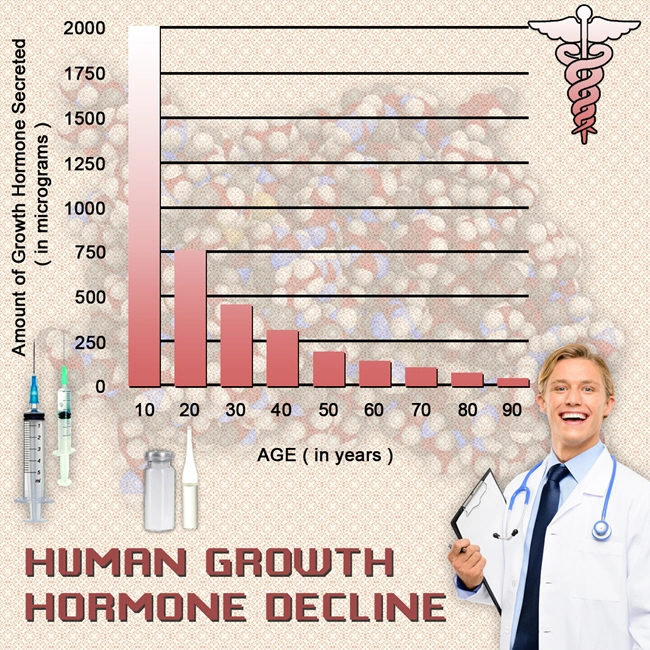
Introduction to Prostate Cancer
Prostate cancer remains one of the most prevalent cancers among American men, with significant implications for health and quality of life. As medical science advances, the focus on preventive measures, particularly chemoprevention, has gained momentum. Chemoprevention involves the use of specific agents to prevent, halt, or delay the development of cancer. This article explores the role of chemoprevention in managing prostate health and reducing the risk of prostate cancer among American men.
Understanding Chemoprevention
Chemoprevention is a promising approach in the fight against prostate cancer. It involves the administration of natural or synthetic substances to prevent the onset of cancer. These agents work by inhibiting the processes that lead to cancer development, such as cell proliferation and inflammation, or by enhancing mechanisms that protect against cancer, such as apoptosis (programmed cell death) and DNA repair.
Key Chemopreventive Agents
Several agents have been studied for their potential in prostate cancer chemoprevention. Among the most promising are:
- **5-alpha-reductase inhibitors (5-ARIs)**: Drugs like finasteride and dutasteride have been shown to reduce the risk of prostate cancer by blocking the conversion of testosterone to dihydrotestosterone (DHT), a hormone that can promote prostate cancer growth.
- **Vitamin D and its analogs**: Vitamin D has been linked to a reduced risk of prostate cancer. Its analogs, such as calcitriol, have shown potential in preclinical studies to inhibit prostate cancer cell growth.
- **Selenium and Vitamin E**: The Selenium and Vitamin E Cancer Prevention Trial (SELECT) initially suggested these nutrients might prevent prostate cancer. However, further research has shown mixed results, indicating the need for more studies to clarify their role.
- **Lycopene**: Found in tomatoes and other red fruits, lycopene has antioxidant properties that may help prevent prostate cancer. Some studies suggest a diet rich in lycopene may lower the risk of developing the disease.
Clinical Evidence and Guidelines
Clinical trials have provided valuable insights into the efficacy of chemopreventive agents. The Prostate Cancer Prevention Trial (PCPT) demonstrated that finasteride could reduce the risk of prostate cancer by about 25%. However, it also increased the risk of high-grade prostate cancer, highlighting the need for careful consideration of the risks and benefits.
The American Urological Association (AUA) and other health organizations have issued guidelines on chemoprevention. They recommend that men at high risk for prostate cancer discuss the potential benefits and risks of chemoprevention with their healthcare providers. This includes men with a family history of prostate cancer or those with certain genetic predispositions.
Lifestyle and Chemoprevention
While chemopreventive agents offer a pharmacological approach to reducing prostate cancer risk, lifestyle modifications play a crucial role in overall prostate health. A diet rich in fruits, vegetables, and whole grains, along with regular physical activity, can complement chemoprevention efforts. Reducing intake of red meat and processed foods, maintaining a healthy weight, and avoiding tobacco use are also important.
Challenges and Future Directions
Despite the promise of chemoprevention, challenges remain. The potential side effects of chemopreventive agents, such as sexual dysfunction and increased risk of high-grade cancer, must be weighed against their benefits. Additionally, the optimal duration and dosage of these agents are still under investigation.
Future research will likely focus on identifying new chemopreventive agents and refining existing ones. Personalized medicine, which tailors chemoprevention strategies to an individual's genetic profile and risk factors, holds significant potential for improving outcomes.
Conclusion
Chemoprevention represents a vital component of prostate cancer prevention for American men. By understanding the role of various agents and integrating them with lifestyle modifications, men can take proactive steps to reduce their risk of developing prostate cancer. As research continues to evolve, the hope is that more effective and safer chemopreventive strategies will emerge, offering new hope in the battle against this prevalent disease.
Contact Us Today For A Free Consultation
Dear Patient,
Once you have completing the above contact form, for security purposes and confirmation, please confirm your information by calling us.
Please call now: 1-800-380-5339.
Welcoming You To Our Clinic, Professor Tom Henderson.

- Prostate Health in Aging American Men: Understanding Conditions and Maintaining Wellness [Last Updated On: March 4th, 2025] [Originally Added On: March 4th, 2025]
- Prostate Health: Key Foods to Reduce Cancer Risk and Promote Wellness [Last Updated On: March 17th, 2025] [Originally Added On: March 17th, 2025]
- Family History and Prostate Health: Understanding Genetic Risks and Early Detection [Last Updated On: March 18th, 2025] [Originally Added On: March 18th, 2025]
- Prostate Health and Heart Disease: Vital Connections for American Men's Health [Last Updated On: March 18th, 2025] [Originally Added On: March 18th, 2025]
- Prostate Cancer Survivorship: Navigating Life After Treatment for American Men [Last Updated On: March 19th, 2025] [Originally Added On: March 19th, 2025]
- Exercise Strategies for Enhancing Prostate Health in American Males [Last Updated On: March 19th, 2025] [Originally Added On: March 19th, 2025]
- Prostate Cancer's Psychological Impact on American Men: Diagnosis to Survivorship [Last Updated On: March 19th, 2025] [Originally Added On: March 19th, 2025]
- Prostate Cancer Screening: Balancing Benefits and Risks with Informed Decision-Making [Last Updated On: March 19th, 2025] [Originally Added On: March 19th, 2025]
- Prostate Health: Understanding Symptoms, Seeking Care, and Lifestyle Management [Last Updated On: March 20th, 2025] [Originally Added On: March 20th, 2025]
- Prostate Cancer Treatments: Understanding and Managing Side Effects in American Men [Last Updated On: March 20th, 2025] [Originally Added On: March 20th, 2025]
- Benign Prostatic Hyperplasia: Symptoms, Causes, and Management for American Men [Last Updated On: March 21st, 2025] [Originally Added On: March 21st, 2025]
- Chronic Stress and Prostate Health: Risks and Management Strategies for American Men [Last Updated On: March 21st, 2025] [Originally Added On: March 21st, 2025]
- Prostate Health: Risks, Diet, Exercise, and Early Detection Strategies for American Men [Last Updated On: March 21st, 2025] [Originally Added On: March 21st, 2025]
- Prostate Cancer's Impact on Fertility: Treatments and Preservation Strategies [Last Updated On: March 22nd, 2025] [Originally Added On: March 22nd, 2025]
- Exercise and Diet: Enhancing Prostate Health in American Males [Last Updated On: March 22nd, 2025] [Originally Added On: March 22nd, 2025]
- Alcohol Consumption's Impact on Prostate Health: Risks and Moderation Guidelines [Last Updated On: March 22nd, 2025] [Originally Added On: March 22nd, 2025]
- Radiation Therapy: A Key Treatment for Prostate Cancer in American Males [Last Updated On: March 22nd, 2025] [Originally Added On: March 22nd, 2025]
- Hormone Therapy's Role in Managing Prostate Cancer for American Men [Last Updated On: March 23rd, 2025] [Originally Added On: March 23rd, 2025]
- Vitamin D's Role in Prostate Health: Insights for American Males [Last Updated On: March 23rd, 2025] [Originally Added On: March 23rd, 2025]
- Prostate Cancer: Navigating Diagnosis and Support for American Men [Last Updated On: March 23rd, 2025] [Originally Added On: March 23rd, 2025]
- Immunotherapy Revolutionizing Prostate Cancer Treatment for American Men [Last Updated On: March 24th, 2025] [Originally Added On: March 24th, 2025]
- Pesticides and Prostate Health: Risks and Mitigation Strategies for American Males [Last Updated On: March 24th, 2025] [Originally Added On: March 24th, 2025]
- Active Surveillance: Managing Low-Risk Prostate Cancer in American Men [Last Updated On: March 24th, 2025] [Originally Added On: March 24th, 2025]
- Targeted Therapy: A New Hope in Prostate Cancer Treatment for American Men [Last Updated On: March 24th, 2025] [Originally Added On: March 24th, 2025]
- Avoiding Key Foods to Maintain Prostate Health in American Men [Last Updated On: March 24th, 2025] [Originally Added On: March 24th, 2025]
- Brachytherapy: Targeted Treatment for Prostate Cancer in American Men [Last Updated On: March 25th, 2025] [Originally Added On: March 25th, 2025]
- HIFU: A Promising Non-Invasive Treatment for Prostate Cancer in American Men [Last Updated On: March 25th, 2025] [Originally Added On: March 25th, 2025]
- Omega-3 Fatty Acids: A Key to Prostate Health in American Males [Last Updated On: March 25th, 2025] [Originally Added On: March 25th, 2025]
- Proton Therapy: A Targeted Approach to Prostate Cancer Treatment in American Men [Last Updated On: March 25th, 2025] [Originally Added On: March 25th, 2025]
- Chemotherapy's Role and Impact on American Men with Prostate Cancer [Last Updated On: March 25th, 2025] [Originally Added On: March 25th, 2025]
- Antioxidants and Prostate Health: A Comprehensive Guide for American Men [Last Updated On: March 25th, 2025] [Originally Added On: March 25th, 2025]
- Sleep Quality's Impact on Prostate Health: A Vital Connection for American Men [Last Updated On: March 25th, 2025] [Originally Added On: March 25th, 2025]
- Environmental Factors and Their Impact on Prostate Health in American Males [Last Updated On: March 25th, 2025] [Originally Added On: March 25th, 2025]
- Lycopene: A Key Nutrient for Prostate Health in American Men [Last Updated On: March 25th, 2025] [Originally Added On: March 25th, 2025]
- Prostate Cancer Stages and Grades: A Comprehensive Guide for American Men [Last Updated On: March 25th, 2025] [Originally Added On: March 25th, 2025]
- Chronic Inflammation's Impact on Prostate Health in American Males: Prevention and Awareness [Last Updated On: March 25th, 2025] [Originally Added On: March 25th, 2025]
- Heavy Metals and Prostate Health: Risks, Impacts, and Preventive Measures [Last Updated On: March 25th, 2025] [Originally Added On: March 25th, 2025]
- CyberKnife: Advanced Non-Invasive Treatment for Prostate Cancer in American Men [Last Updated On: March 26th, 2025] [Originally Added On: March 26th, 2025]
- Prostate and Bone Health: Vital Connections and Management Strategies for American Men [Last Updated On: March 26th, 2025] [Originally Added On: March 26th, 2025]
- Palliative Care's Vital Role in Enhancing Prostate Cancer Patients' Quality of Life [Last Updated On: March 27th, 2025] [Originally Added On: March 27th, 2025]
- Hydration's Vital Role in Prostate Health for American Males [Last Updated On: March 27th, 2025] [Originally Added On: March 27th, 2025]
- Prostate Cancer and Cryotherapy: A Minimally Invasive Treatment Option for American Men [Last Updated On: March 27th, 2025] [Originally Added On: March 27th, 2025]
- Vitamin E's Role in Prostate Health: Benefits and Considerations for American Males [Last Updated On: March 27th, 2025] [Originally Added On: March 27th, 2025]
- Photodynamic Therapy: A Promising, Less Invasive Treatment for Prostate Cancer in American Men [Last Updated On: March 27th, 2025] [Originally Added On: March 27th, 2025]
- Selenium's Role in Prostate Health: Benefits and Dietary Sources [Last Updated On: March 28th, 2025] [Originally Added On: March 28th, 2025]
- Plastics' Impact on Prostate Health: BPA, Phthalates, and Preventive Measures [Last Updated On: March 28th, 2025] [Originally Added On: March 28th, 2025]
- Zinc's Vital Role in Prostate Health for American Males: Benefits and Sources [Last Updated On: March 28th, 2025] [Originally Added On: March 28th, 2025]
- Green Tea Benefits for Prostate Health in American Males: Prevention and Management [Last Updated On: March 28th, 2025] [Originally Added On: March 28th, 2025]
- Air Pollution's Impact on Prostate Health: Risks and Mitigation Strategies [Last Updated On: March 29th, 2025] [Originally Added On: March 29th, 2025]
- Prostate Cancer Management: Understanding Watchful Waiting for Low-Risk Patients [Last Updated On: March 30th, 2025] [Originally Added On: March 30th, 2025]
- Prostate Cancer Surgery: Understanding Radical Prostatectomy and Its Impact [Last Updated On: March 31st, 2025] [Originally Added On: March 31st, 2025]
- Cruciferous Vegetables: Enhancing Prostate Health in American Males [Last Updated On: April 1st, 2025] [Originally Added On: April 1st, 2025]
- EMF Exposure and Prostate Health: Risks and Mitigation Strategies for American Males [Last Updated On: April 2nd, 2025] [Originally Added On: April 2nd, 2025]
- Robotic Surgery for Prostate Cancer: Benefits, Procedure, and Recovery Insights [Last Updated On: April 4th, 2025] [Originally Added On: April 4th, 2025]
- Focal Therapy: A Promising, Less Invasive Option for Prostate Cancer in American Men [Last Updated On: April 4th, 2025] [Originally Added On: April 4th, 2025]
- Endocrine Disruptors and Prostate Health: Risks and Mitigation Strategies for American Males [Last Updated On: April 7th, 2025] [Originally Added On: April 7th, 2025]
- Laparoscopic Surgery: A Minimally Invasive Option for Prostate Cancer Treatment [Last Updated On: April 8th, 2025] [Originally Added On: April 8th, 2025]
- Salvage Therapy: A Critical Approach to Managing Prostate Cancer in American Men [Last Updated On: April 8th, 2025] [Originally Added On: April 8th, 2025]
- Industrial Chemicals' Impact on Prostate Health: Risks and Prevention Strategies [Last Updated On: April 8th, 2025] [Originally Added On: April 8th, 2025]
- Flaxseed Benefits for Prostate Health: Cancer Prevention and BPH Relief [Last Updated On: April 10th, 2025] [Originally Added On: April 10th, 2025]
- Soy Isoflavones: A Dietary Approach to Enhancing Prostate Health in American Males [Last Updated On: April 10th, 2025] [Originally Added On: April 10th, 2025]
- Prostate Health Management: Balancing Pharmaceuticals and Quality of Life in American Males [Last Updated On: April 10th, 2025] [Originally Added On: April 10th, 2025]
- Pomegranate's Role in Enhancing Prostate Health: Nutritional Benefits and Research Insights [Last Updated On: April 12th, 2025] [Originally Added On: April 12th, 2025]
- Palliative Surgery for Advanced Prostate Cancer: Benefits, Risks, and Holistic Care [Last Updated On: April 12th, 2025] [Originally Added On: April 12th, 2025]
- Neoadjuvant Therapy in Prostate Cancer: Benefits, Side Effects, and Future Directions [Last Updated On: April 12th, 2025] [Originally Added On: April 12th, 2025]
- Adjuvant Therapy in Prostate Cancer: Enhancing Outcomes and Quality of Life [Last Updated On: April 13th, 2025] [Originally Added On: April 13th, 2025]
- Bisphosphonates: Enhancing Bone Health in Metastatic Prostate Cancer Management [Last Updated On: April 13th, 2025] [Originally Added On: April 13th, 2025]
- Denosumab: A Promising Treatment for Prostate Cancer in American Men [Last Updated On: April 14th, 2025] [Originally Added On: April 14th, 2025]
- RANK Ligand Inhibitors: A Promising Therapy for Prostate Cancer Bone Metastases [Last Updated On: April 15th, 2025] [Originally Added On: April 15th, 2025]
- Heavy Physical Work's Impact on Prostate Health: Risks and Mitigation Strategies [Last Updated On: April 15th, 2025] [Originally Added On: April 15th, 2025]
- Radium-223: A Targeted Therapy for Advanced Prostate Cancer in American Men [Last Updated On: April 16th, 2025] [Originally Added On: April 16th, 2025]
- Abiraterone: Revolutionizing Prostate Cancer Treatment in American Men [Last Updated On: April 16th, 2025] [Originally Added On: April 16th, 2025]
- Enzalutamide: A Key Advance in Prostate Cancer Treatment for American Men [Last Updated On: April 16th, 2025] [Originally Added On: April 16th, 2025]
- Ginger's Role in Supporting Prostate Health: Benefits and Dietary Integration [Last Updated On: April 16th, 2025] [Originally Added On: April 16th, 2025]
- Turmeric's Potential Benefits for Prostate Health in American Males [Last Updated On: April 17th, 2025] [Originally Added On: April 17th, 2025]
- Shift Work's Impact on Prostate Health: Risks and Mitigation Strategies for American Males [Last Updated On: April 18th, 2025] [Originally Added On: April 18th, 2025]
- Prostate Health Risks and Mitigation Strategies for Long-Haul Truckers [Last Updated On: April 19th, 2025] [Originally Added On: April 19th, 2025]








